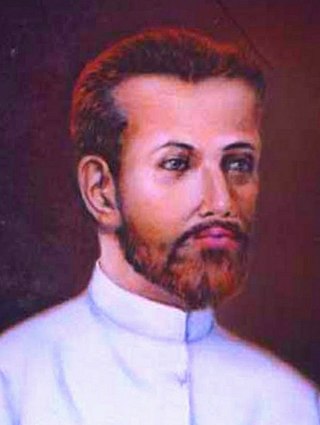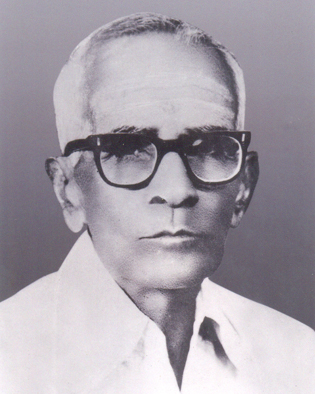Related Research Articles

Malayalam is a Dravidian language spoken in the Indian state of Kerala and the union territories of Lakshadweep and Puducherry by the Malayali people. It is one of 22 scheduled languages of India. Malayalam was designated a "Classical Language of India" in 2013. Malayalam has official language status in Kerala, Lakshadweep and Puducherry (Mahé), and is also the primary spoken language of Lakshadweep. Malayalam is spoken by 35 million people in India. Malayalam is also spoken by linguistic minorities in the neighbouring states; with a significant number of speakers in the Kodagu and Dakshina Kannada districts of Karnataka, and Kanyakumari, Coimbatore and Nilgiris district of Tamil Nadu. It is also spoken by the Malayali Diaspora worldwide, especially in the Persian Gulf countries, due to the large populations of Malayali expatriates there. They are a significant population in each city in India including Mumbai, Bengaluru, Chennai, Delhi, Hyderabad etc.

Malayalam, the lingua franca of the Indian state of Kerala and the union territories of Lakshadweep and Puduchery, is one of the six classical languages of India. Malayalam literature comprises those literary texts written in Malayalam, a South-Dravidian language spoken in the Indian state of Kerala. The first travelogue in any Indian language is the Malayalam Varthamanappusthakam, written by Paremmakkal Thoma Kathanar in 1785. Malayalam literature has been presented with 6 Jnanapith awards, the second-most for any Dravidian language and the third-highest for any Indian language.
Indian literature refers to the literature produced on the Indian subcontinent until 1947 and in the Republic of India thereafter. The Eighth Schedule to the Constitution of India has 22 officially recognised languages. Sahitya Akademi, India's highest literary body, also has 24 recognised literary languages.

Ādi purāṇa is a 9th-century CE Sanskrit poem composed by Jinasena, a Digambara monk. It deals with the life of Rishabhanatha, the first Tirthankara.

Johann Ernst Hanxleden (1681–1732), also known as Arnos Pathiri, was a German Jesuit priest and missionary, best known for his contributions as a Malayalam and Sanskrit poet, grammarian, lexicographer, and philologist. He lived in India for most of his life and became a scholar of Sanskrit and Malayalam languages before authoring Puthen Pana, a poem on the life of Jesus Christ, Malayalam–Portuguese Dictionary, the first dictionary in Malayalam as well as two linguistic treatises, Malayalavyaakaranam and Sidharoopam.
Kanakku Chembakaraman Kesava Pillai (1868–1914) was an Indian composer of Carnatic music and a poet of Malayalam literature. He was the Poet Laureate of Travancore and was known for Kesaveeyam, a mahakavya in Malayalam, two attakathas and several bhajans and kirtans. He also translated the Sanskrit text, Narayaniyam, into Malayalam under the title, Bhashanarayaniyam.

Ulloor S. Parameswara Iyer, born Sambasivan but popularly known as Ulloor, was an Indian poet of Malayalam literature and a historian. He was one of the modern triumvirate poets of Kerala in the first half of the 20th century, along with Kumaran Asan and Vallathol Narayana Menon. Umakeralam, a mahakavya, and Kerala Sahitya Charitram, a comprehensive history of the Malayalam language are two of his most important works.
Kattakayam Cherian Mappillai (1859–1936) was an Indian poet and playwright of Malayalam literature. He was known for the epic poem Shreeyeshu Vijayam, which earned him the title of Mahakavi. He was the founder editor of Vijnaana Rathnaakaram, one of the earliest literary magazines in Malayalam language. Pope Pius XI presented him a gold medal in 1931.
Medieval Kannada literature covered a wide range of subjects and genres which can broadly be classified under the Jain, Virashaiva, Vaishnava and secular traditions. These include writings from the 7th century rise of the Badami Chalukya empire to the 16th century, coinciding with the decline of Vijayanagara Empire. The earliest known literary works until about the 12th century CE were mostly authored by the Jainas along with a few works by Virashaivas and Brahmins and hence this period is called the age of Jain literature,. The 13th century CE, to the 15th century CE, saw the emergence of numerous Virashaiva and Brahminical writers with a proportional decline in Jain literary works. Thereafter, Virashaiva and Brahmin writers have dominated the Kannada literary tradition. Some of the earliest metres used by Jain writers prior to 9th century include the chattana, bedande and the melvadu metres, writings in which have not been discovered but are known from references made to them in later centuries. Popular metres from the 9th century onwards when Kannada literature is available are the champu-kavyas or just champu, vachanasangatya, shatpadi, ragale, tripadi, and kavya.
Malayalam poetry is poetry written, spoken, or composed in Modern, as well as Old and Classical, Malayalam.
Seevolli Narayanan Nambudiri (1868–1905) was a well-known Malayali poet of the Venmani style, who was also an Ayurvedic physician.
Cherusseri Namboothiri was a 15th-century Malayalam poet who belonged to Kolathunadu, in present-day North Malabar region of Kerala. He was a court poet of Udaya Varma (1446–1475) and the author of Krishna Gadha, a poem which is considered a landmark in the development of Malayalam literature.

K. S. Neelakantan Unni (1895-1980) was a renowned Malayalam writer and Sanskrit scholar - translator from Kerala, India. He was born into a family called Kavil Madam in a village Olassa in Kottayam District of Kerala, India. This family is associated to the ThekkumKoor royal dynasty as their Asan or Guru
Champu or Chapu-Kavya is a genre of literary composition in Indian literature. The word 'Champu' means a combination of poetry and prose. A champu-kavya consists of a mixture of prose (Gadya-Kavya) and poetry passages (Padya-Kavya), with verses interspersed among prose sections.

Kodungallur Kunjikkuttan Thampuran was a Malayalam poet and prominent Sanskrit scholar of Kerala. His birth-name was Rama Varma. He is famous for his single-handed, word-by-word translation of entire Mahabharata within 874 days for which he gained the epithet Kerala Vyasa.

Plakkiyil Chacko Devassia, often known as Mahakavi P. C. Devassia, was a Sanskrit and Malayalam literary scholar, literary translator, and poet from Kerala, India. In 1980, Devassia, a lifelong Christian from the Syro-Malabar Church, one of the 23 Eastern Catholic Churches, won the Sahitya Akademi Award for Sanskrit. The prize was awarded for Devassia's poem Kristubhagavatam, a Mahakavyam, or very high prestige form of Indian epic poetry composed in Classical Sanskrit, but with its traditions transformed into a work of Christian poetry about the life and ministry of Jesus Christ. He has also received the Kerala Sahitya Akademi Award for his overall contributions to Malayalam literature.

Kurissery Gopala Pillai was an orientalist, researcher, lexicographer, poet, essayist, grammarian and scholar of Malayalam and Sanskrit languages. He specialised in Comparative study of languages.

Azhakathu Padmanabha Kurup, was a renowned scholar in Sanskrit and Malayalam, who composed the first Malayalam epic poem Ramachandravilasam.
Middle Malayalam is the period of the Malayalam language spanning from 13th century to 15th century AD.
Chathanath Achuthanunni is a polyglot, Malayalam language writer and translator from Kerala, India. He received many awards including Kerala Sahitya Akademi Award for Overall Contributions (2011) Kerala Sahitya Akademi Award (1987) and Sahridayavedi Award (1988). In 2022 he received the Sahitya Akademi Translation Prize, a literary honour in India, presented by Sahitya Akademi, India's National Academy of Letters.
References
- ↑ Menon, A. Sreedhara (2007-01-01). Keralacharithram (in Malayalam). DC Books. ISBN 978-81-264-1588-5.